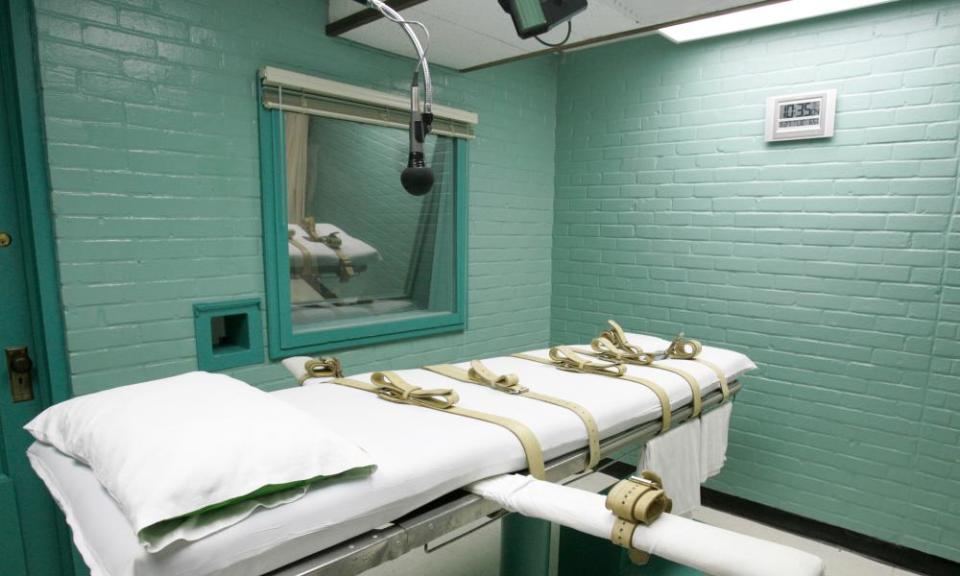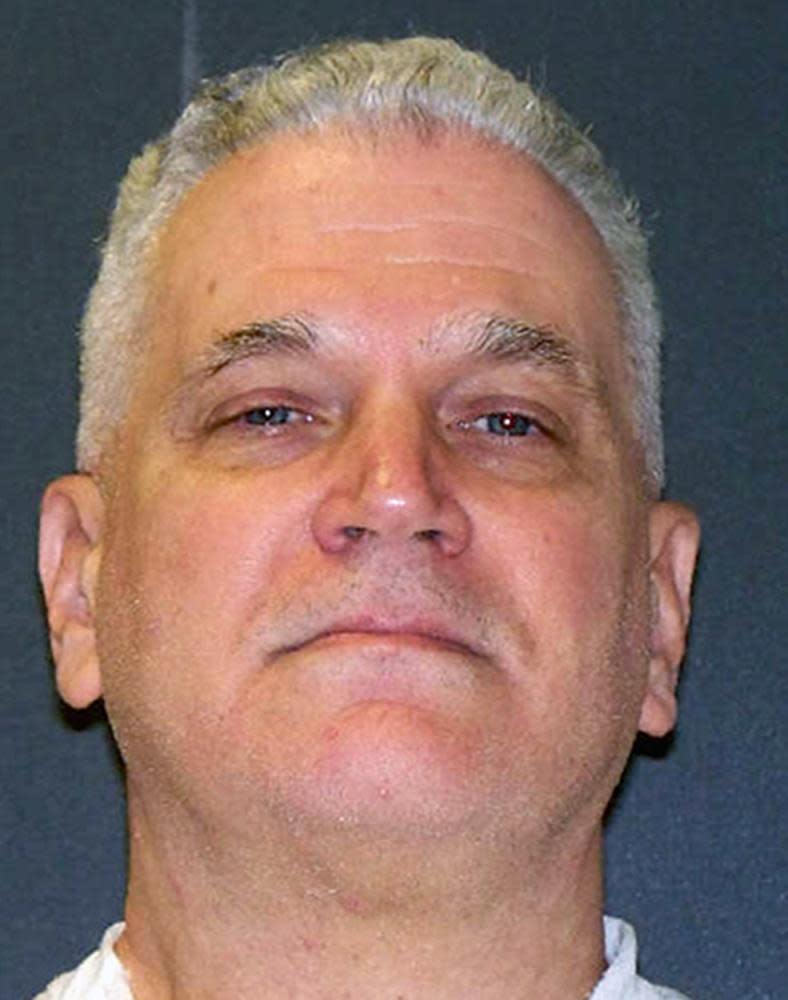Texas to execute third prisoner this year amid reports of botched killings
Exclusive: eyewitnesses to the first two judicial killings in the state last month reported alarming scenes on the gurney

Texas prepared on Thursday afternoon to put to death its third prisoner this year, using a batch of old and poorly regulated sedatives, which eyewitnesses have suggested may have led to the botched executions of two other inmates in the past two weeks.
John Battaglia, 62, is set to die after 6pm local time on Thursday, using a lethal dose of the barbiturate pentobarbital. If the procedure goes ahead Texas will have completed three executions this year. No other state has carried out an execution so far in 2018.

The Guardian can reveal that witnesses to the first two judicial killings last month – that of Anthony Shore on 18 January and William Rayford on 30 January – reported alarming scenes on the gurney, tantamount to the procedure being botched.
An ordained priest who was Shore’s spiritual adviser has given a sworn account in an affidavit of what she saw at his execution. She said that as the pentobarbital was injected into Shore’s veins, his body started to tremble and he said, in a stressed voice: “Ohh weeee, I can feel that it does burn. Burning!”
Shore continued to appear to struggle to breathe, and the priest testified that he “had a desperate look on his face”. His comment about a burning sensation was reminiscent of the botched execution of Michael Wilson by Oklahoma in 2014 during which Wilson said exclaimed, mid-procedure: “I feel my whole body burning.”
Shore was put to death for the serial murders of four people, from a nine-year-old girl to a 21-year-old woman, for which he became known as the “tourniquet killer”.
Two eyewitnesses to the Rayford execution on Tuesday also reported alarming events. Liliane Sticher, who was present in the viewing room of the death chamber at the Huntsville unit, said she saw the prisoner’s torso rise about 30 degrees after the drug went in. “He was shaking and looked at me as if he wanted to say something, as if in distress, as if asking for help,” Sticher said.
A similar account was given by Danielle Allen, another witness, who reported that Rayford’s “eyelids twitched, and then his head jerked back into the pillow”.
“His face was twisted into a grimace,” Allen said. “It’s hard to describe but Mr Rayford was clearly in severe pain.”
Rayford was executed for the 1999 murder of Carol Hall, 44, in Dallas County. Battaglia is set to be executed for killing his two daughters, Liberty and Faith, in 2001.
With the clock ticking down on Battaglia’s execution, his lawyers have filed an emergency complaint in federal district court in Houston, calling for the procedure to be stopped. They point out that the same batch of pentobarbital used in the troubling deaths of Shore and Rayford is scheduled to be injected into Battaglia on Thursday evening.
The batch is more than a year old, and according to defense lawyers it is “well beyond anything that is considered acceptable by the relevant scientific treatises or by experts in the field”.
In the wake of a boycott of death penalty states by drugs manufacturers, Texas has taken to acquiring the chemicals it needs to kill prisoners from “compounding pharmacies” – storefront outlets that concoct their own equivalents of big-name brands. The compounded medicines are much less stringently regulated by federal authorities, and as a result their consistency and effectiveness can vary.
Initially, the “beyond-use date” assigned to the batch – or the point at which it should be discarded – was set at 22 January 2018. But records obtained from the Texas department of criminal justice show that, shortly before Rayford’s execution, the date was changed to November this year.
Maya Foa, director of the international human rights group Reprieve, said that Texas should have disposed of the batch of pentobarbital almost a year ago. “No responsible pharmacist would have anything to do with these medicines,” Foa said, “but the department of criminal justice appears to have manipulated the beyond-use dates to keep their dwindling stocks in use, without thought to the suffering they could cause.”
She added that Tuesday’s execution demonstrated “the consequences of the state insisting on experimenting with poor-quality drugs that have been cooked up in compounding labs, hidden from public scrutiny or oversight by secrecy laws that harm public trust and potentially endanger public health”.

